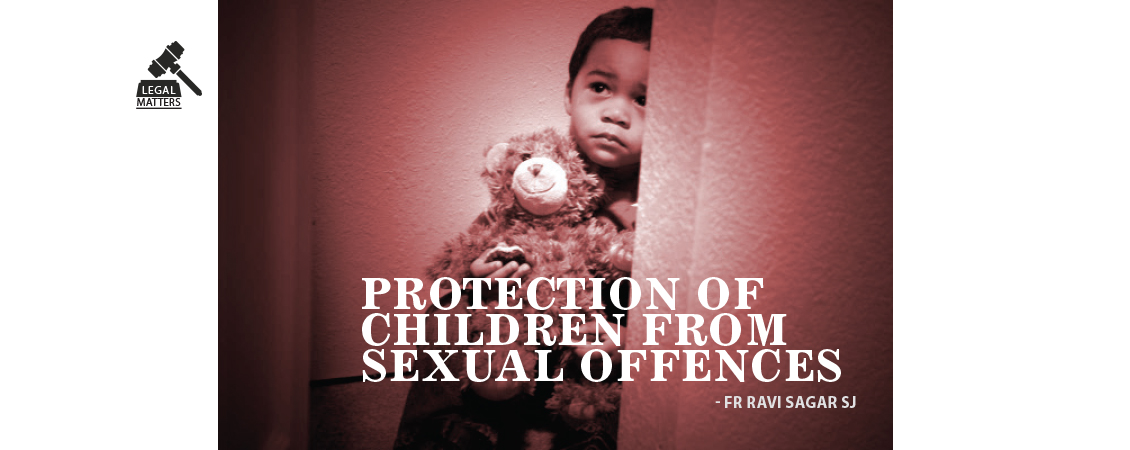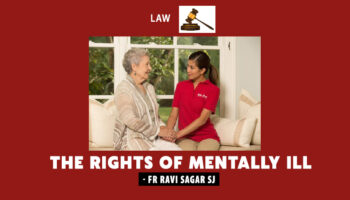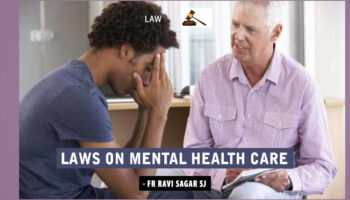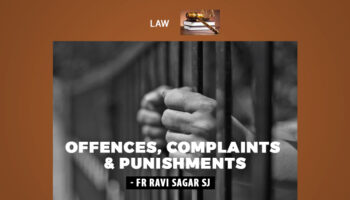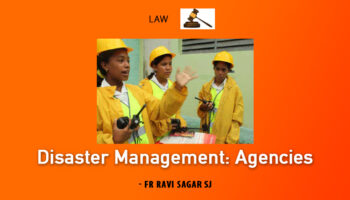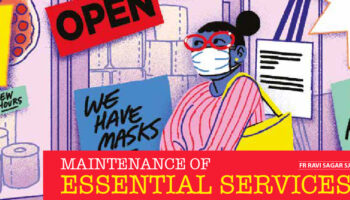Rampant Child Sexual Abuse
In the last issue of MAGNET, Fr. (Dr) Jose Parappully SDB unfolded shocking facts and figures of Child abuse in India and this issue provides the pathways to healing and recovery. There is a sharp increase in the incidences of sexual abuse as well as in reporting them. Even a survey held in 2007 revealed 53% of children in India face some form of sexual abuse. Therefore, the need for stringent law has been felt many times.
The Legislation on Child Sexual Abuse
The increasing incidences of sexual abuse against children had to be addressed through a separate legislation. The Indian Penal Code (IPC) and other criminal laws did not specifically provide legal safeguards against child sexual abuse particularly boys. Hence, The Protection of Children from Sexual Offences Act, 2012 (POCSO) was legislated to strengthen the legal provisions for the protection of children from sexual abuse and exploitation. The government formulated rules in accordance with the law and notified them on 14 November 2012. Thus, the law became ready for implementation.
Child Sexual Abuse is Punishable
Defining a child as a person below the age of 18 years, the POCSO provides protection from sexual abuse to all children under 18 who constitute about 40% of the population. The POCSO enumerates offences under which an accused can be punished. As per the gravity of the offence, the punishments range from simple to rigorous imprisonment of varying periods. The court may also impose fine at its discretion.
Sexual Offences against Children
The gender-neutral POCSO defines sexual offences against children for the first time in law which include Sexual Assault, Penetrative Sexual Assault, Sexual Harassment and using children for pornographic purpose including abetment of and attempt to commit sexual offences.
First, a person is said to commit ‘Sexual Assault’ when with a sexual intent touches the genitals or the erogenous parts of the child or makes the child to touch the person or any other person or does any act which involves physical contact without penetration.
Second, a person is said to commit ‘Penetrative Sexual Assault’ when a person inserts his/her genitals or any part of the body or any other objects or manipulates to cause penetration or applies mouth to the genitals of the child or makes the child to do the above mentioned acts with the person or with any other person.
Both kinds of offences mentioned above are treated as “Aggravated” with severe punishment when they are committed by a person who is in a position of trust and authority over child such as a member of security forces, police officer, public servant, members of management and staff of hospitals, educational institutions, religious institutions, children’s homes, etc.
Third, ‘Sexual Harassment’ includes a wide range of behaviour such as uttering any word, making any sound or gesture, exhibiting body or any part of the body or any object, repeated contacts either directly or through electronic media, threatening to use the body of the child or part of the body in media and enticing the child for pornographic purpose. Thus the law criminalizes acts of immodesty against children too.
Fourth, ‘Use of child for pornographic purpose’ includes involving a child for sexual gratification through a medium like print, electronic, computer or any other technology for preparation, production, offering, transmitting, publishing, facilitation and distribution of pornographic materials. The Act criminalizes even watching, collection and storage of pornographic content involving children.
Fifth, ‘abetment of or an attempt to commit these offences’ is also punishable under POCSO in the same way as if the person had committed the offence. This would cover trafficking of children for sexual purposes. The attempt for whatever reason to commit an offence under the Act has been made liable for punishment for up to half the punishment prescribed for the commission of the offence.
Reporting of Sexual Offence against Children is Mandatory
The Act obligates mandatory reporting of sexual offences against children to the Special Juvenile Police Unit (SJPU) or to the local police. An obligation is imposed on institutions and its personnel to report such cases when they come across any material or object which is sexually exploitative of children. In the case of failing to report or to record the case, not only the person who failed to do so, but also the one in charge of the institution attracts punishment. At the same time, it also prescribes punishment for a person providing false information with the intention to defame any person, including a child. In reporting the cases, the media is barred from disclosing the identity of the child without the permission of the court and breaching this provision may attract punishment for from six months to one year.
The Burden of Proof lies on the Accused
The Act provides for the establishment of Special Courts for trial of offences under the Act, keeping the best interest of the child as of paramount importance at every stage of the judicial process. Unlike other criminal laws, for the more heinous offences of Penetrative Sexual Assault, Aggravated Penetrative Sexual Assault, Sexual Assault and Aggravated Sexual Assault, the burden of proof is shifted to the accused from the prosecution. The Special Court shall also presume the culpable mental state and the onus shall be for the accused to prove the absence of the same in his/her defence.
Child-Friendly Procedures in the Law
Child-friendly procedures for reporting, recording of evidence, investigation and trial of these offences are incorporated in law which include; recording the statement of the child at the residence of the child or at the place of his/her choice, preferably by a woman police officer above the rank of sub-inspector. No child is to be detained in the police station in the night for any reason and the police officer is mandated not to be in uniform while recording the statement of the child. Further, the statement of the child is to be recorded as spoken by the child; assistance of an interpreter including special educator in special cases is to be given as per the case and the need of the child. The trial is to be conducted in camera and not in the open court.
Medical examination of the child is to be conducted in the presence of the parent of the child or any other person in whom the child has trust or confidence. In case the victim child is a girl, the medical examination shall be conducted by a woman doctor. Frequent breaks for the child during trial are to be given and the child is not to be called repeatedly to testify. At the same time care must be taken not to do aggressive questioning or character assassination of the child.
The POCSO casts a duty on the governments to spread awareness on the provisions through media including television, radio and print media at regular intervals to educate the general public, children, as well as their parents and guardians. The National Commission for the Protection of Child Rights and State Commissions for the Protection of Child Rights have been designated to monitor the implementation of the Act.
Be Shrewd as Serpents and Innocent as Doves
Jesus’ invitation to children ‘let them come to me’ (Mt. 19:14) moves Christians to treat them with love and tenderness removing all stumbling blocks (Mt. 18:6). The law of the land obligates them to create a safe environment for children under their care. They are bound to act seriously against any incidences of sexual offences against children with immediate and appropriate response.
While maintaining a zero tolerance policy towards these incidences, Church-Institutions and its personnel must demonstrate an exemplary behaviour in creating a safe environment in their premises for children with all necessary safeguards and precautions. In this regard appropriate orientation and training of its personnel, putting an end to imprudent obsessive-compulsive practices, will encourage best practices among them. No doubt it will also guide them a long way in dealing with the inevitable, false-malicious-frivolous accusations which are intended to defame them and their mission.

To subscribe to the magazine Contact Us
